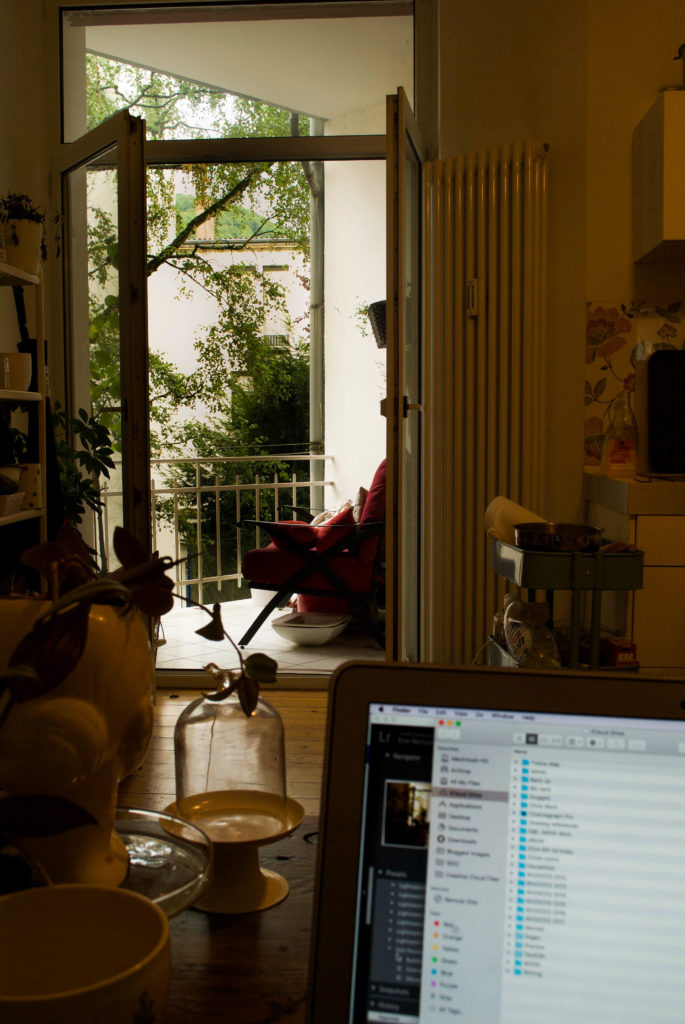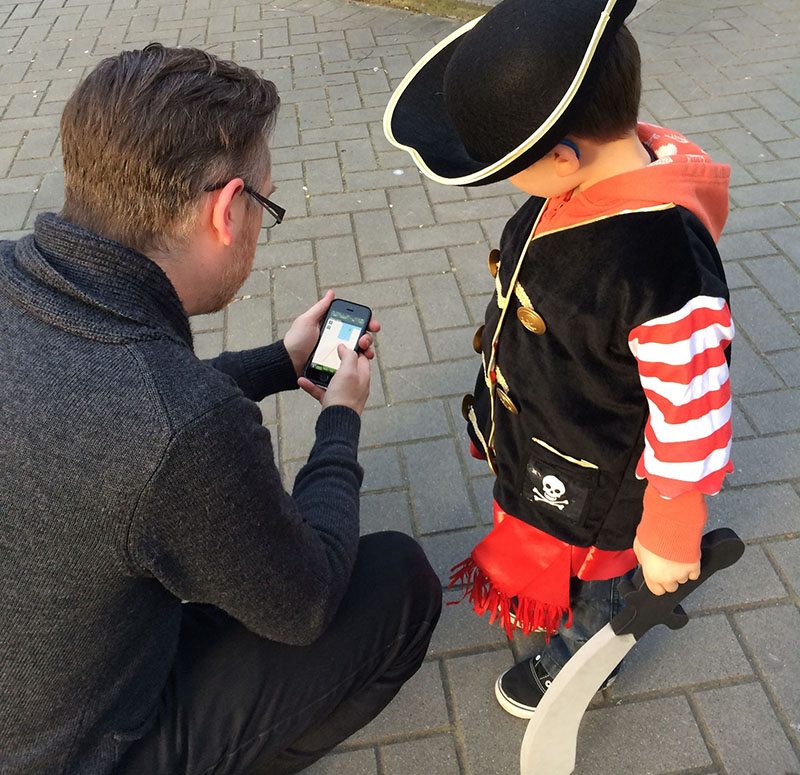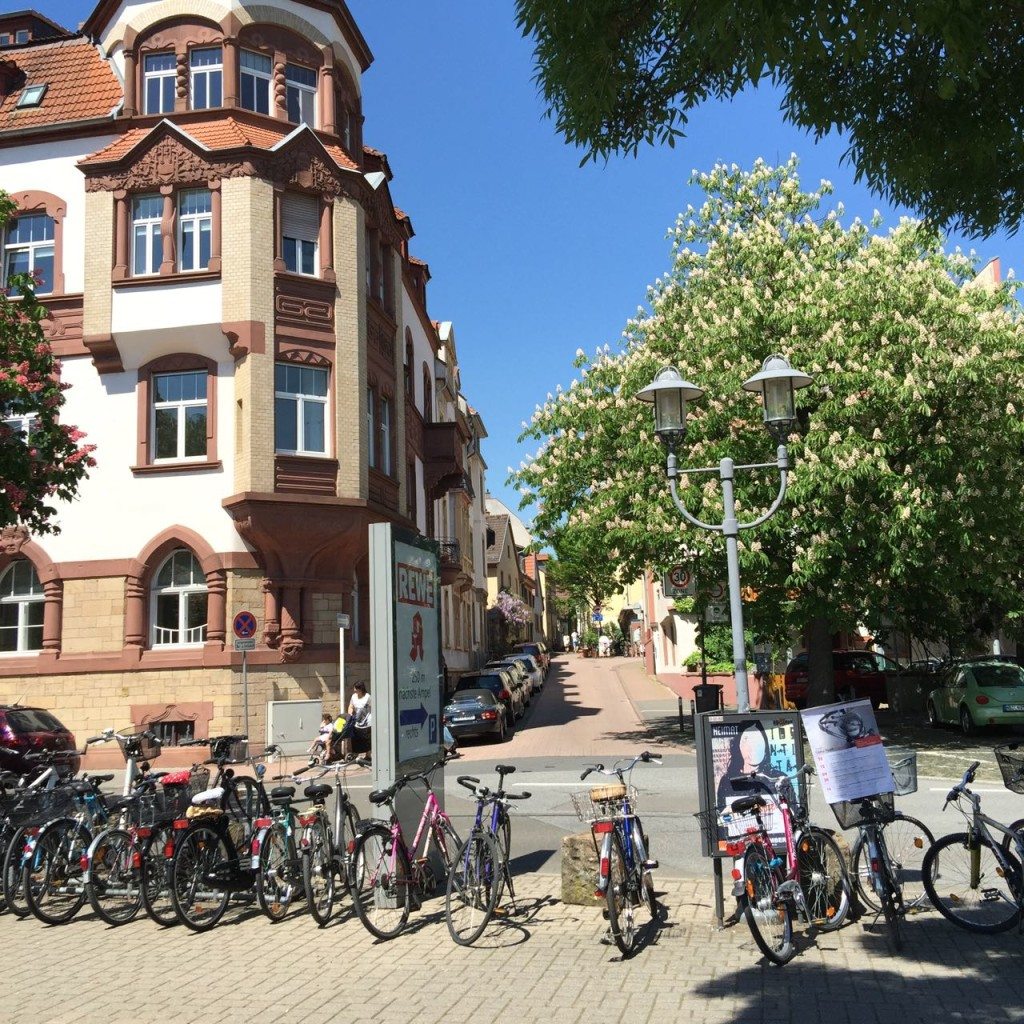This post contains affiliate links. Should you click on one, I will get a small commission at no extra cost to you. Thank you for supporting my work!
I’ve approached learning German in several ways, most recently using Lingoda. Lingoda is a web-based language learning program that connects you with live teachers via audio and webcam. The system is based on the CEFR language certification (A1, A2, etc) which is what most people understand when you’re explaining to schools or employers your language proficiency level. You can also receive your certificates through Lingoda, without having to pay and take a test at a local language school. They offer courses in English, German, French and Spanish.
I will write about my own journey with language learning shortly, but the tl;dr version is I’ve gone through Duolingo in German, group classes at university in French, to private lessons here in Germany in German – so I’m familiar with many ways of learning languages. I’m finishing up my A2 in German.

How does Lingoda work?
You pay a monthly fee, and receive class credits. You can choose all group classes, all private lessons, or a mix of both. I went for a mix of both. I have to say, the group classes are very small, only 4-5 people, so you won’t get lost in the mix. I personally like the chance to gather my thoughts and plan an answer when I know my turn is coming up, so four or five people in the class is perfect. The classes are based on skills, conversation, reading, and writing. You can see all the options laid out for your particular language level.
You select days and a range of times, and your options for classes pops up. You select your classes from there. What I particularly like is being able to choose a class quite late on. Say you realize you have time this evening, you can still sign up for a class. Though by the same token, cancelling requires seven days notice, so I would suggest not to book everything ahead, but book as you go. You can do the lessons in order, or just pick what interests you to start. I picked a few at random to start, and honestly wish I had stayed more with the official order as I think I was a bit over my head to begin with!
I recommend having a notebook and pen beside you to make notes as you go along in class. It helps when you know you’re going to have to answer something as you can attempt to work it out a bit first, as well as making note of something you’d like to ask about later. For my learning style, it helps cement concepts in my mind to write them down. I recommend going through the learning materials before class starts so you’re not completely new to the subject matter.
Related: Five tips for not losing your mind when you move abroad
How were the teachers?
I’ve had a few now, and I would say they are quite good. They are experienced with the system and the material, so they kept things moving ahead, but I didn’t feel rushed. The teachers are all native speakers, which is so critical to getting your pronunciation right. I felt like they didn’t gloss over mistakes, but matter of factly corrected students, but didn’t get overly hung up on sentence structure when we were trying to answer more freeform questions. That is so crucial, because it’s so important to feel like you’re making some progress with conversational language, and it’s easy for language learners to get bogged down in details.
As with any language learning experience, you get what you put in. Don’t hesitate to ask questions if you don’t understand something a teacher has said and put yourself out there a bit. Obviously it’s important to wait your turn in class, and even more so when we’re all remote, but there’s a button for raising your hand. I understand feeling embarrassed for not knowing something, I so get it. In fact, I get a cold sweat before class starts sometimes! But you will enjoy learning, and your teachers will enjoy teaching you when you go into class thinking positively about participating. They can’t help you learn if you don’t try and make mistakes!
How do I know my language level?
If you haven’t been taking language classes, I would start at the beginning, even if you know a little bit. Speaking a new language is as much about confidence as the vocab and the grammar, so if you have a little time to get into it without being faced with new words, that can really help. You can do a level test online – I tried this language level test online and it accurately reported what level I’m at – or book a customized private class on Lingoda and a teacher can tell you. I already knew what level I was at from my previous lessons, so I didn’t need to do this.

Is Lingoda any good?
It is good. As with any language learning experience, if you put in the time you will reap the benefit, so you need to buckle down and do your classes. Being able to structure the pace of classes to my timetable has been a huge benefit to me –– particularly when I have more free time I can take a few more, and slow down when things get busy. You get the benefit of a live teacher instead of automated system like Duolingo, so your pronunciation is corrected, as well as having to think on your feet. Lingoda has a lot of the benefits I was missing from a local class, but on my random schedule.
Is it cheap? Well relatively yes, you are benefitting from native speaker teachers in a small-class size environment, so I would say it’s quite competitively priced. I can only find local language classes that are every day all day, or one evening a week, but nothing in between. This allows to me to study at a sort of middle intensive level. Granted I hear German spoken all day everyday around me, so your mileage may vary if you’re learning a language in isolation. However, I still think this would be the best way to do it, particularly when it comes to pronunciation as you will for sure have a native speaker as a teacher, which is harder to come by when you’re learning somewhere else. It’s so critical to getting your pronunciation right to learn it correctly the first time!
Obviously every platform has its downsides, and my main issue with Lingoda is the seven day class cancellation policy. I definitely value teachers’ time, but even three days would be more realistic. Because you’re dealing with an online platform, sometimes there’s some messing around with students losing the connection to the class, or your teacher losing their connection and having to come back in. In my experience, it’s been minimally disruptive, as the teachers seem to have a good handle on the system.
The bottom line: should you try Lingoda?
If you’re serious about learning a language, and you’re finding it difficult to find live classes that fit in your schedule, Lingoda is a great alternative. Having native speakers as teachers, and being able to take more classes when you have more time, and fewer when you have less is great for parents, working people with unreliable schedules, and freelancers. If you’re looking to pick up a language in a casual way, this will probably be more than you want, and I’d encourage you to find a once-a-week class at a local community college or try Duolingo for free for a bit. As an immigrant trying to learn the local language, it’s a life saver.




can you still get certifications by just paying monthly?
Good question, let me ask them!
I’ve checked with Lingoda, and they said it’s no extra charge.
I’m taking some other language classes this summer, but I will definitely consider Lingoda in the coming months. A fellow language-learning friend is taking the “half-marathon” in German and she is also impressed with the format and instruction. Thank you for your thoughtful review!
“You can also receive your certificates through Lingoda, without having to pay and take a test at a local language school. ”
This is WRONG. Lingoda certificates are completely WORTHLESS
You do get a certificate you can download, so what I said is correct. However, I don’t think they’re any more or less useless than a certificate from any random language school. What was your experience, John?
Not sure why you’re choosing to give such a disingenuous answer.
First, you are comparing Lingoda certificates to local language schools which offer courses that are government-approved and certificates that are internationally recognised. Then when you get called out you change that comparison to ‘any random language school’. Pathetic.
So, no, you’re wrong. The certificates from Lingoda aren’t a replacement for officially recognised certificates received from reputable language schools.
I know you earn referrals from this rubbish, but please try keep your self-respect in the process instead of being just another Lingoda paid shill
Well, if you had checked, you can clearly see I am not a Lingoda affiliate as my links are plain, so I would appreciate it if you don’t slander me that way. I have taken language classes at in-person language schools, including places like Berlitz which is a reputable language school, and the exams are not challenging. So to be honest, I find taking the classes as important in recognizing one’s language level as a certificate from a language school which just means you’ve passed their test. They are as financially incentivized to have you pass as anyone else. I stand by my review – I think Lingoda is a good value way to learn languages if you can’t attend an in-person school and need to attain a certain level. I’m sorry you had a bad experience, but please take your vitriol elsewhere.
Thanks for this. I have 2 questions:
1. Does Lingoda auto charge you every month or do you have to pay the fee every month? I don’t like the idea of getting charged automatically, so is there a way for the client to be in control and pay when we wan to?
2. Are all the levels accessible in advance? (A1.1, A1.2, A2.1, A2.2, B1.1, B1.2, B2, C1, C2) or do we have to complete one level to gain access to the next one?
Thanks again,
Alex
Also, I live in Canada, does that matter at all in any way (registration process, bank account, etc..)
Hi to a fellow Canadian!
1 – Yes, they do charge you every month. I suggest contacting them if you’d like a different arrangement, I’ve found them quite responsive.
2 – Yes, you can decide what level you want to study at from the beginning, and change it midway through if you want (though I suspect you lose your progress).
3 – Yep, you can study from anywhere as far as I know.
Best of luck on your language study!
Kinda interesting, BUT in my own experience there are several things an online class can’t provide. But first: Yes, you can learn a new language with lingoda, that is totally possible. Mostly because of their live teacher system. But it will take time. Not as much as with some of those language apps (if you make progress at all with these things), but still more than in a language school. I hadn’t had the time to go slowly. I had to do the head first full dive experience. One day you’re at home, next day you begin your new life in Germany, something between these lines happened to me. Anyway as I knew I was moving to Berlin, I began learning at home. First with an app (Duolingo), than with a teacher from my hometown (no German native speaker) and finally in a local language school. All good, all slow.
Then I moved to Berlin, applied for German intensive course at speakeasy and took my first telc exam about one month later. The speed at which I suddenly made progress was amazing! Surrounding yourself with the desired language and having native speakers as teachers improved my language skills in a way, no website nor app could’ve ever done.
That’s definitely true – but not many people have the ability to do a full-time intensive course. I certainly don’t between parenting and freelance work. That will always be the quickest option I suppose, if speed is your number one requirement.
Good article thanks for it